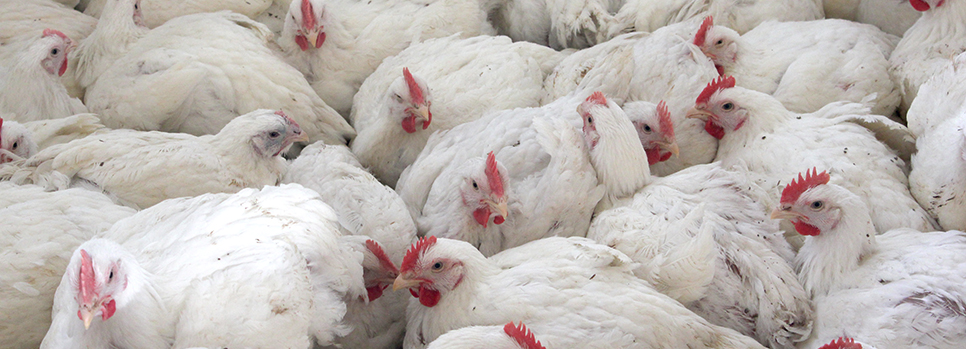WELFARE OF FARMED CHICKENS POSITIVELY AFFECTS THEIR INTESTINAL MICROBIOTA

Better animal treatment conditions result in a more diversified intestinal flora, creating a less favourable environment for the development of microorganisms dangerous to human health
Chicken are the main source of Campylobacter, responsible for most cases of food poisoning in Europe. For this reason, efforts are being made all over the world to identify new prevention and control strategies at farm level, with the aim of reducing the risk to public health.
In this regard, a study by the National Reference Laboratory for Campylobacter of the Experimental Zooprophylactic Institute of Abruzzo and Molise (IZSAM) focuses on the intestinal microbiota of broilers, showing that animals with a high level of well-being have a richer bacterial flora, capable of creating an environment less susceptible to Campylobacter infection.
"Microbiota - says Dr Lisa Di Marcantonio, National Reference Laboratory for Campylobacter, first author of the paper, published in the journal Research in Veterinary Science - can be defined as the set of commensal microorganisms living in an environment and performing functions necessary for guest. Understanding its functions, and the interactions between the various microorganisms, is becoming more and more important".
IZSAM researchers examined chickens from ten different farms located in four Italian regions. Their intestinal flora was examined with genomic analysis techniques in order to identify the various types of microorganisms present, determining their diversity and detecting the presence of Campylobacter. At the same time, the level of animal welfare was assessed through the European Welfare Quality protocol, which takes into account nutrition, accommodation, health and behaviour.
“Our results - continues Di Marcantonio - suggest that poultry not colonized by Campylobacter showed a greater microbiota diversity, a fact correlated with greater resistance to the colonization of pathogens. Conversely, low microbiota diversity was associated with presence of Campylobacter”.
Animal welfare appears to play a key role in this context. “Recent studies - explains the researcher - highlighted a direct relationship between the stress that chickens undergo in the farm and the contamination by food-borne pathogens. We showed that animals with a high level of welfare (determined by environmental factors such as litter, access to feed and climate) had, thanks to the diversity of their microbiota, an intestinal environment less favourable to the proliferation of Campylobacter. This could be explained by the specific composition of microbiota, with high levels of certain microbial species negatively influencing Campylobacter through a competition mechanism, such as bacteriocin production or direct stimulation of the host's immune system".
“We must bear in mind - says Giuliano Garofolo, Head of the National Reference Laboratory for Campylobacter - that a significant reduction in the presence of Campylobacter in primary production would have a strong impact in reducing the risk for public health. This objective, as shown by our research, could be achieved with the contribution of a correct management of the environments and of the breeding conditions".

- Lisa Di Marcantonio
Di Marcantonio L., Marotta F., Podaliri Vulpiani M., Quixi Sonntag, Iannetti L., Janowicz A., Di Serafino G., Di Giannatale E., Garofolo G. Investigating the cecal microbiota in broiler poultry farms and its potential relationships with animal welfare. Research in Veterinary Science 2022, 144, 115-125, ISSN 0034-5288.
Istituto Zooprofilattico Sperimentale
dell'Abruzzo e del Molise "G. Caporale"
Campo Boario | 64100 TERAMO | ITALIA
Telefono 0039.0861.3321 | Fax 0039.0861.332251
e-mail: archivioeprotocollo@izs.it
Posta elettronica certificata: protocollo@pec.izs.it
Partita IVA: 00060330677
Codice Fiscale: 80006470670


